ASU therapeutic recreation grad found calling to help others
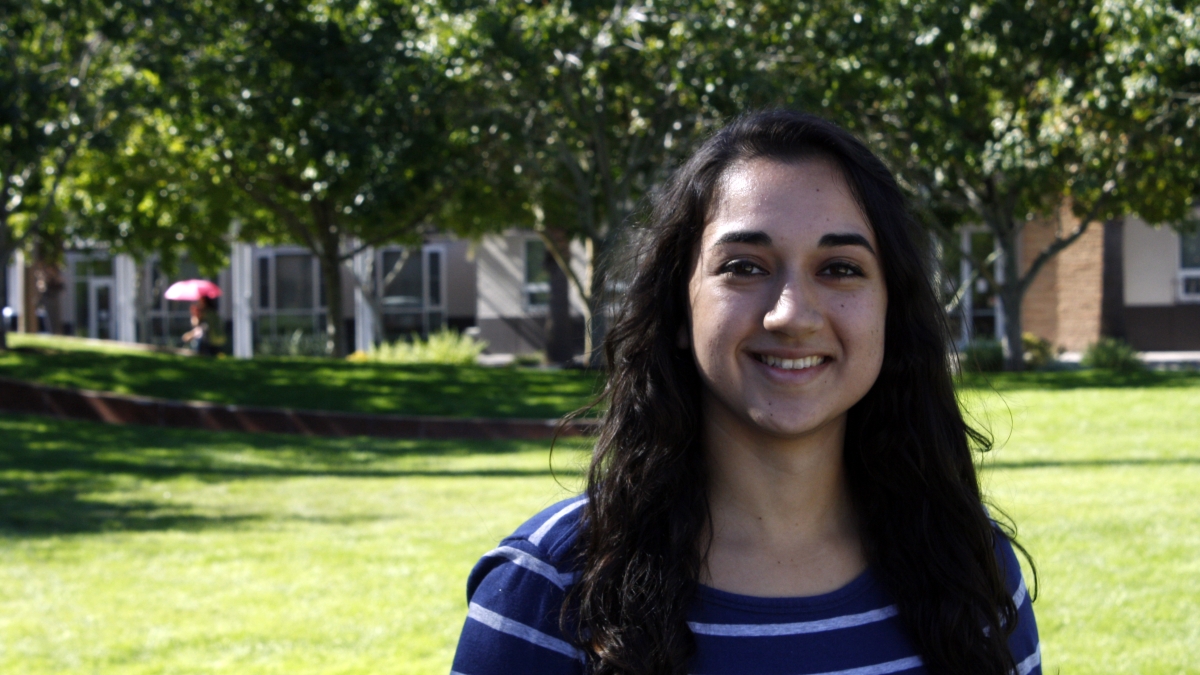
ASU graduate Graciela Alvarez.
Editor’s note: This is part of a series of profiles for fall 2017 commencement. See more graduates here.
Graciela Alvarez has known she wanted to earn a degree in therapeutic recreation since she was a community college student. But she didn’t realize she would impact the lives of so many people before she graduated with her Bachelor of Science in parks and recreation from Arizona State University's School of Community Resources and Development.
Alvarez interned at the Phoenix Veteran’s Administration hospital her last semester to become a Certified Therapeutic Recreation Specialist. She worked mostly with veterans recovering from substance abuse. A U.S. Army veteran herself, Alvarez joined the military upon graduation from Mesa Community College and currently serves in the Arizona National Guard.
Her passion, talents and commitment to serve others also benefited residents of the Westward Ho, a low-income housing complex for seniors and people with disabilities. Alvarez was a fixture at the ASU Collaboratory at the Westward Ho, a central space where ASU students from recreation therapy, social work, nursing and nutrition gained valuable hands-on experience with residents. Alvarez taught weekly guitar, tai chi and chair yoga classes as part of an interprofessional practicum for a semester and continued teaching guitar lessons on a volunteer basis after her class ended.
“Through working with individuals with all kinds of disabilities, I have had the opportunity to empower people to do the things they never imagined they'd be able to do,” said Alvarez.
Like many students in her college, Alvarez is the first person in her family to graduate from college and proud of her accomplishment.
“Being a first-generation college student pushed me outside my comfort zone, tested my ability to figure things out on my own, and taught me to make the best out of what I have been given,” Alvarez said.
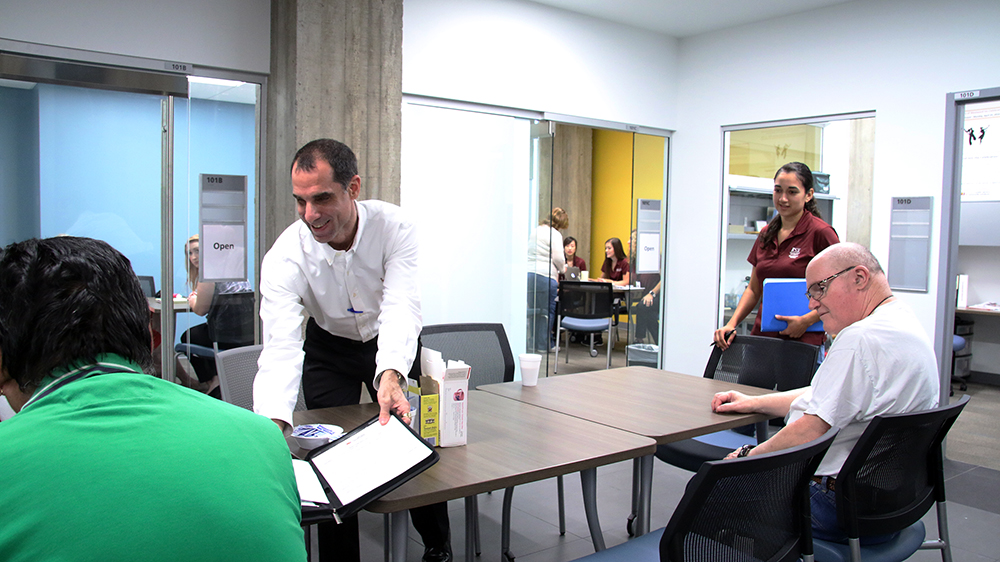
Graciela Alvarez (right) looks on as social work student Andy Pastore welcomes a resident of the Westward Ho to the Collaboratory on Central.
Q. What was your “aha” moment, when you realized you wanted to study the field you majored in?
I learned about recreation therapy during a presentation about it at Mesa Community College and switched my major immediately. I never knew I could directly treat people through recreation and thought it was a perfect fit for me.
Q. What’s something you learned while at ASU — in the classroom or otherwise — that surprised you, which changed your perspective?
Just how much need there is not only globally but at the local level. It made me want to become more aware of all the issues that are affecting others and how I can play my part to help in any way that I can.
Q. What’s the best piece of advice you’d give to those still in school?
Try to get involved in your community where professionals are already trying to make a difference through your profession. It’ll give you continuous motivation to learn as much as you can and will expose you to different areas you could work for in the future.
Q. What was your favorite spot on campus, whether for studying, meeting friends or just thinking about life?
ASU’s side of the downtown Phoenix post office looking out toward Civic Space Park and the city. It is a great place to see how well an urban area and nature can come together.
Q. What are your plans after graduation?
I have applied at the Arizona State Hospital to gain more experience in mental health. Later on, I hope to get opportunities to work in adaptive sports or outdoor recreation therapy.
Q. Why did you choose ASU?
It is the only school in the state with a Therapeutic Recreation program but I also admire how the school strives for diversity in its students, staff, and education.
Q. If someone gave you $40 million to solve one problem on our planet, what would you tackle?
I would try to make a dent in the many systems that sometimes lead individuals to homelessness.
Written by Faith Peterson
More Health and medicine
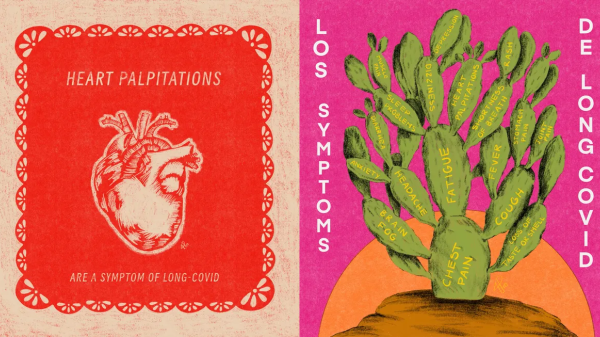
Health communication program brings long COVID awareness to Latinos
After COVID-19 hit the Latino community especially hard, Gilberto Lopez created COVIDLatino, a health communication program…
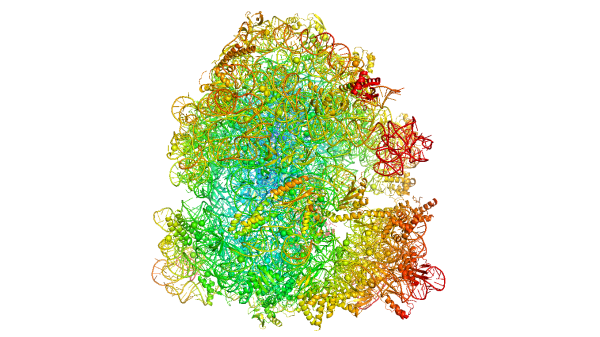
Gates Foundation to fund research on antibiotic resistance
Antibiotic resistance, what happens when germs develop the ability to defeat the drugs designed to kill them, is a growing…
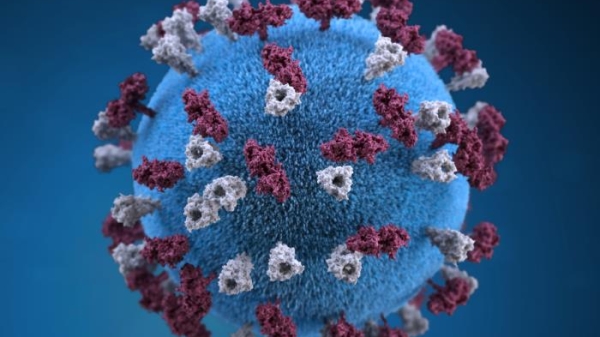
ASU epidemiologist on the rise in US measles cases
The Centers for Disease Control and Prevention issued an alert this month about a rise in measles cases worldwide. And as of…